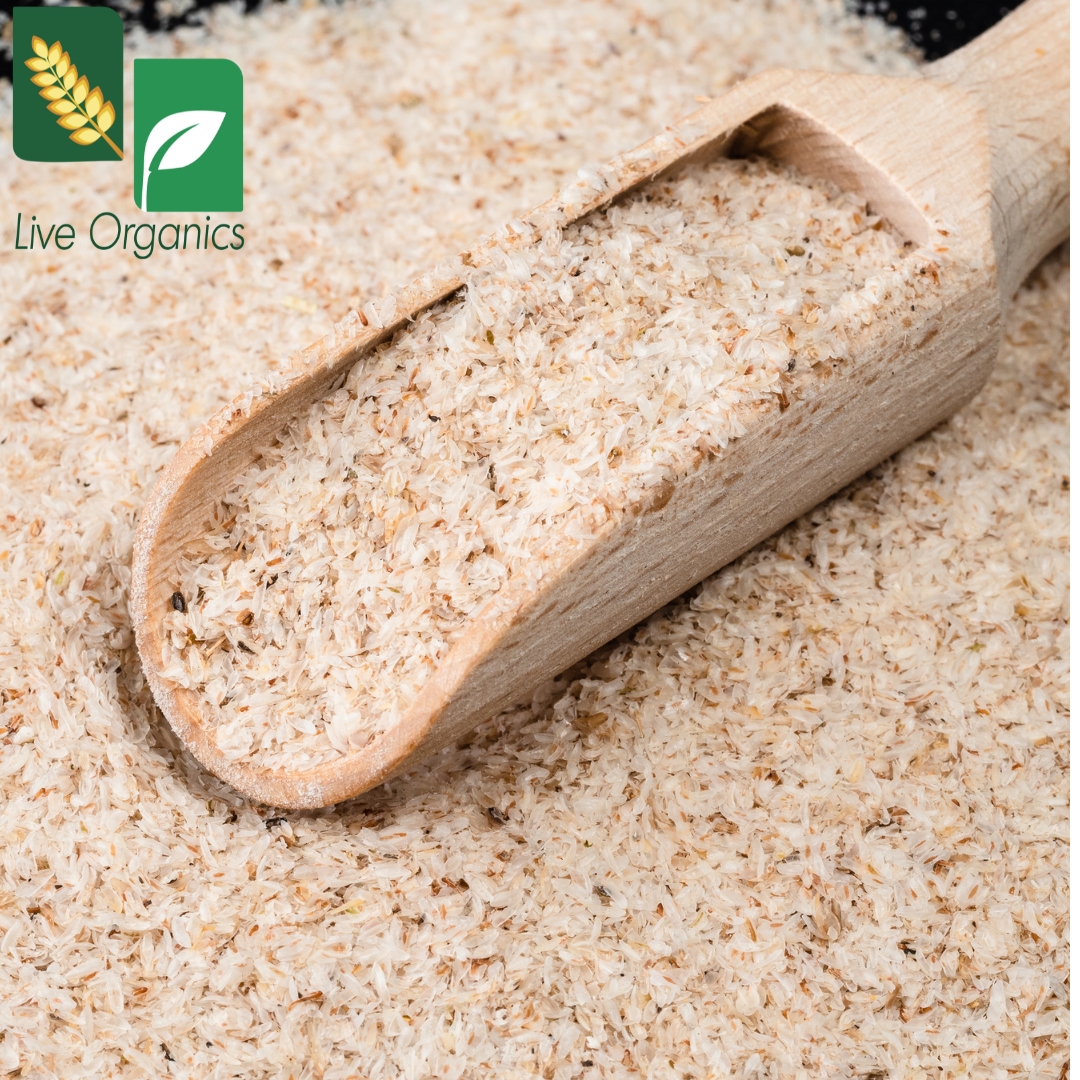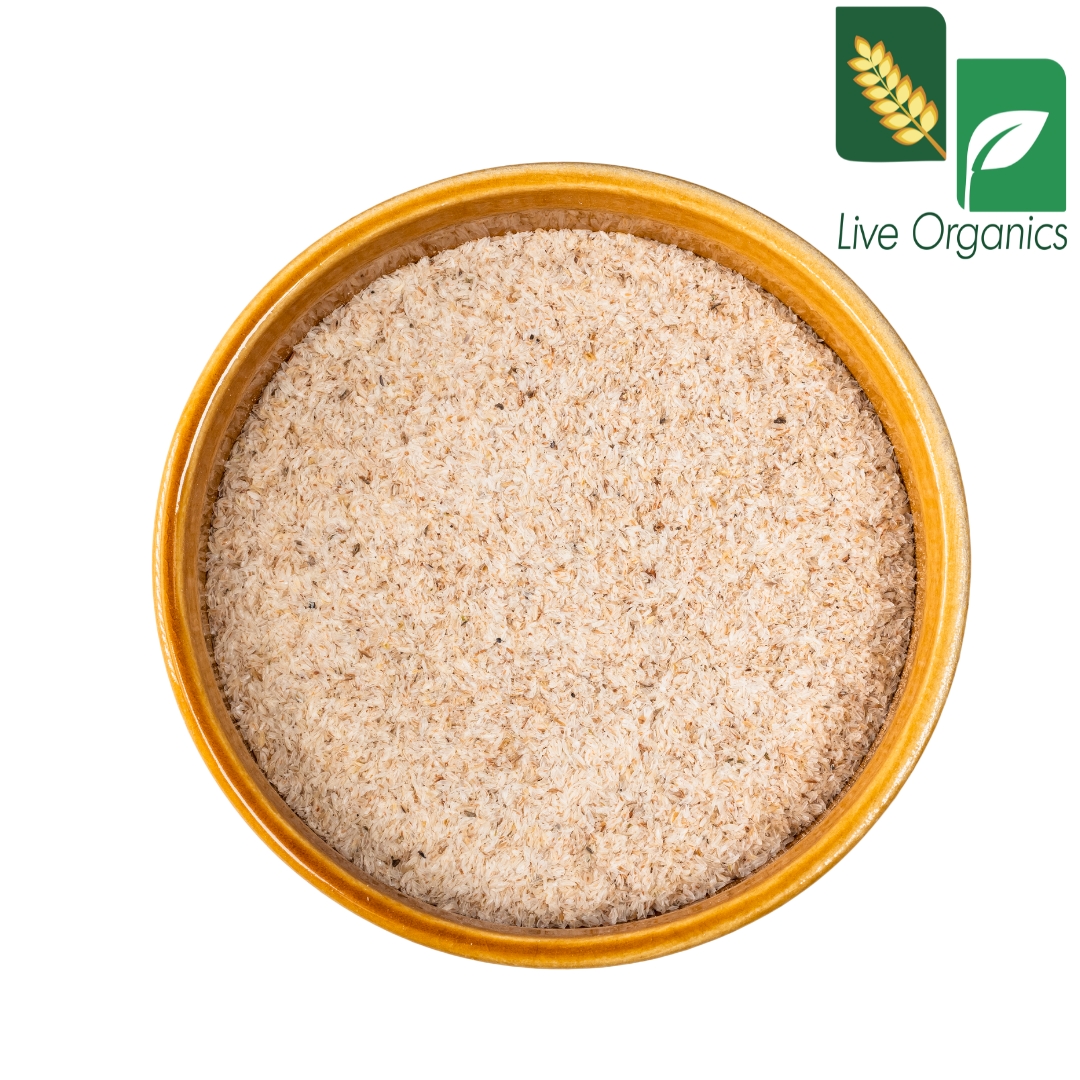Psyllium husk is a dietary fiber made from the husks or outer coating of the seeds of the Plantago ovata plant. It is commonly used as a natural laxative and dietary supplement due to its high fiber content. Psyllium husk is often available in the form of a fine powder or capsules and is known for its ability to absorb water and form a gel-like substance when mixed with liquid.
Psyllium husk offers several potential health benefits when used as part of a balanced diet and healthy lifestyle. Some of the key benefits include:
1. Digestive Health: Psyllium husk is well-known for its ability to relieve constipation and promote regular bowel movements. It softens stool and adds bulk, making it easier to pass waste through the digestive tract.
2. Cholesterol Management: Psyllium fiber can help lower LDL (low-density lipoprotein) cholesterol levels, which is often referred to as "bad" cholesterol. By reducing cholesterol absorption in the gut, psyllium husk may contribute to better heart health.
3. Blood Sugar Control: Consuming psyllium husk may help stabilise blood sugar levels, making it a potentially useful dietary addition for individuals with diabetes. It can slow the absorption of sugar from the digestive tract, preventing rapid spikes in blood glucose.
4. Weight Management: The soluble fiber in psyllium can create a feeling of fullness and satiety, which may help reduce overall food intake and support weight management efforts.
5. Improved Gut Health: Psyllium husk promotes the growth of beneficial gut bacteria, which can contribute to a healthier gut microbiome. A balanced gut microbiome is associated with better digestion and overall well-being.
6. Colon Health: Regular consumption of psyllium fiber may help reduce the risk of certain colon-related conditions, including colorectal cancer. It can help maintain a healthy colon by promoting regular bowel movements and preventing constipation.
7. Reduced Risk of Hemorrhoids: Psyllium husk's stool-softening and bulk-forming properties can alleviate the strain and pressure on the rectum and anus, reducing the risk of hemorrhoids.
8. Detoxification: Psyllium husk can help flush toxins and waste products from the digestive tract, supporting the body's natural detoxification processes.
It's important to note that individual responses to psyllium husk may vary, and its effectiveness depends on factors like dosage, overall diet, and lifestyle. If you have specific health concerns or conditions, it's advisable to consult with a healthcare professional before incorporating psyllium husk into your diet or supplement regimen. Additionally, it's crucial to drink plenty of water when consuming psyllium to avoid potential digestive issues and to follow the recommended dosage instructions on the product label.
Psyllium husk can be consumed in various forms to enjoy its health benefits. Here are some common ways to incorporate psyllium husk into your diet:
- Psyllium Husk Powder: Psyllium husk is often available in the form of a fine powder, which can be easily mixed into liquids or added to foods. Here's how to use it:
- Mix with Water: Add a teaspoon or two of psyllium husk powder to a glass of water, juice, or a smoothie. Stir well and drink it quickly, as it can thicken and become gel-like.
- Add to Oatmeal or Cereal: Sprinkle psyllium husk powder over your morning oatmeal or cereal for added fiber and texture.
- Baking: Incorporate psyllium husk powder into recipes for baked goods like muffins or pancakes for a fiber boost.
- Psyllium Husk Capsules or Tablets: If you prefer a convenient option, psyllium husk is available in the form of capsules or tablets. Follow the dosage instructions on the product label or as advised by a healthcare professional.
- Psyllium-Fortified Foods: Some food products, such as certain cereals, granola bars, and bread, contain psyllium husk as an ingredient. Check product labels for added psyllium fiber.
- Homemade Smoothies: Add psyllium husk powder to your homemade smoothies for a thicker texture and added fiber. It can help create a feeling of fullness.
- Beverages: Psyllium husk can be mixed into various beverages, including herbal teas and protein shakes, to increase their fiber content.
When consuming psyllium husk, it's crucial to:
- Drink Plenty of Water: Psyllium husk absorbs water, so it's important to drink adequate fluids when consuming it. This helps prevent dehydration and ensures it moves through the digestive tract effectively.
- Start with Small Amounts: If you're new to psyllium husk, start with a small dosage and gradually increase it to allow your digestive system to adjust.
- Follow Dosage Instructions: Follow the recommended dosage instructions on the product label or as advised by a healthcare professional.
- Be Consistent: To experience the full benefits, incorporate psyllium husk into your daily routine consistently.
- Consult a Healthcare Professional: If you have specific health concerns or are taking medications, consult with a healthcare provider before adding psyllium husk to your diet, as it may interact with certain medications.
Psyllium husk is generally safe for most people when used as directed, but it's important to use it responsibly and according to your individual needs and health circumstances.



